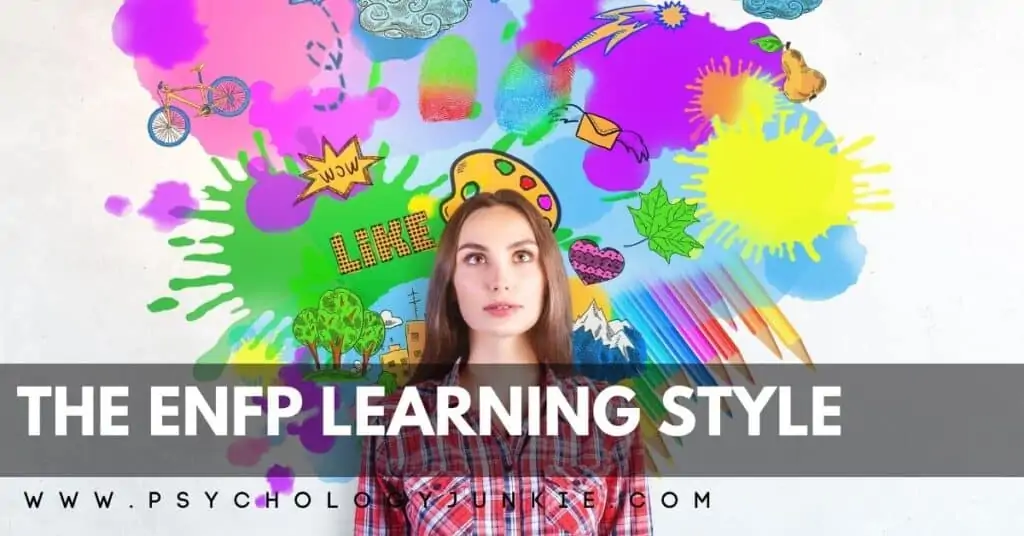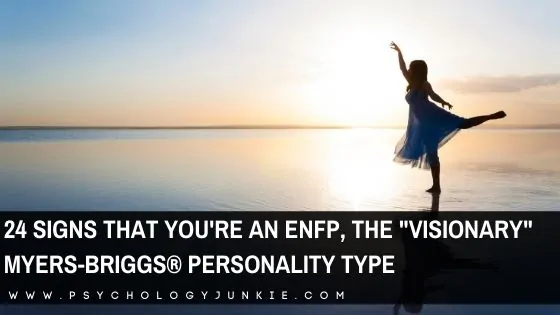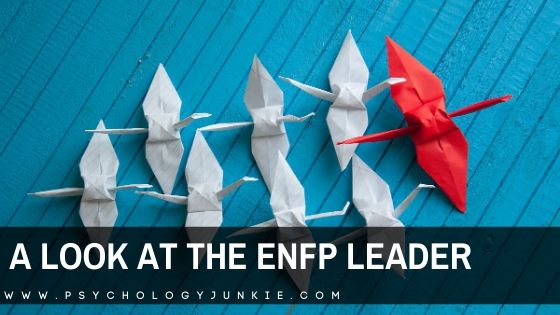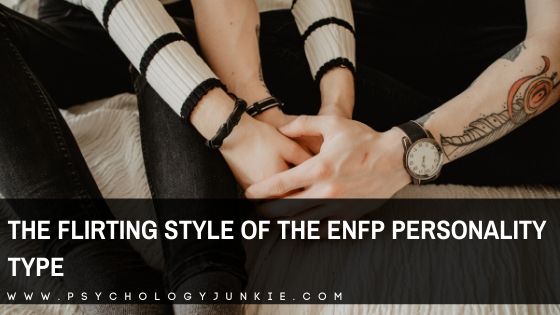What is an ENFP “Visionary”?
ENFP personality types are known for their incredible way of inspiring and bringing out the beauty and imagination in everyday life. Because of their intuitive, adventurous nature, they have a way of infusing excitement into every day life. Along with their eye for possibility, these personalities also have a deep love of humanity and the world itself. Because of this, they excel at careers that make use of their creativity, people skills, and ability to think outside the box.
As natural explorers at heart, ENFPs usually enjoy careers that offer a variety of tasks. Sticking to the same old routine day after day will make them bored unless they are doing meaningful work that aligns with their values. Due to their natural joy of getting people involved and excited, they excel at bringing others on board to new business ventures or humanitarian pursuits. Because they like dealing with many moving pieces, they can also handle multi-tasking and chaos better than many types.

Think you might be this personality type? Take our questionnaire to find out!
What Does ENFP Stand For?
E = Extroversion. “I focus outwards on the world around me before I inwardly reflect on my subjective perceptions.”
N = iNtuition. “I prefer focusing on abstract possibilities and ideas rather than concrete data. I enjoy imagining what could be rather than dwelling on what “is.””
F = Feeling. “I apply personal values and ethics to my decision-making. I want to live in congruence with my moral code and I consider the emotional impact a decision will have on others.”
P = Perceiving. “I like having a lot of options and tend to be adaptable and spontaneous. I like to mix work with play and enjoy an exploratory approach to life.”
Motivations and Weaknesses:
Stressors: Constraints on brainstorming, rigid rules and schedules, repetition, boredom, lack of stimulation from the outside world, too much time alone.
Driving Force: To generate ideas, possibilities, and new ways of doing things. To explore theories, innovate, and create opportunities.
Backup Strength: To live a life in alignment with their deeply-held values and ethics. To stand up for a cause they believe in. To experience inner harmony and integrity with one’s self.
Weaknesses: May be so focused on new ways of doing things that they “re-invent the wheel” and struggle to create consistent routines. May be so focused on the big picture that they lose sight of the details.
ENFP Personality Traits:
While every person varies based on their background and their Enneagram type, ENFPs often have the following characteristics:
- Keep their options open
- Imaginative and open-minded
- Look for possibilities beyond the immediate situation
- Empathetic and conscientious
- Need regular time to socialize and interact with a variety of people
- Open about ideas but more private about their inner feelings
- Skilled at understanding the authenticity levels of others
- See abstract connections between things that may seem random to others
- Put themselves in other people’s shoes
- Curious and excited by variety
- Don’t like being tied down to a lot of rules, structures, or guidelines
ENFP Jobs:
More than anything, ENFPs crave the opportunity to use their enthusiasm and creativity to innovate and inspire. Because they are less concerned with stability and job security than other types, they are able to take more risks and experiment with careers that other types might find too “creative.” While their efforts may seem reckless to some, many ENFPs are happier and more fulfilled with a non-traditional career path. Staying within the lines has never been their forte, and they function better in a lifestyle that aligns with their values and their need for variety. But ENFPs aren’t all about taking risks and mixing things up; many are drawn to longer-term careers that allow them to help people in therapeutic ways – whether that be through counseling, the arts, or writing.
ENFPs crave a job that:
- Is varied and diverse
- Lets them create
- Allows them to take risks and challenge themselves
- Requires very little nitty-gritty detail work
- Allows them independence and flexibility
- Lets them work with, and meet, new people
- Coincides with their personal values
- Is centered in a friendly and relaxed environment
- Rewards imagination, enthusiasm, and innovation
Popular jobs for ENFPs:
- Inventor
- Writer
- Counselor
- Artist
- Teacher
- Journalist
- Entrepreneur
- Creative director
- Actor/Performer
- Public Relations Specialist
Famous ENFPs:
- Hunter S. Thompson
- Oscar Wilde
- Aldous Huxley
- Anne Frank
- Ariana Huffington
- Osho
- Anais Nin
- Salvador Dali
- George Carlin
- Ricky Gervais
- Robin Williams
- Daniel Radcliffe
The ENFP’s Cognitive Functions:
The ENFP’s Dominant Function: Extraverted Intuition (Ne)
Extraverted Intuition, or Ne for short, is how ENFPs absorb information in the outer world. It makes them highly attuned to possibilities, theoretical ideas, meanings, and interconnections. When you speak to an ENFP they will probably be very aware of anything you leave out, or any connection that what you say now has to what you might have said before. They will weave various contexts into the situation or conversation to pick up on different interpretations and meanings. This ability makes them very attuned to when people are being insincere or telling “white lies”.
ENFPs are inspired by possibilities in the outer world. In everything, they see huge potential and limitless creative ideas and options. They love brainstorming, juggling many different ideas and tangents at once, and looking for unique possibilities in very chaotic situations. The ENFP doesn’t look at things and see exactly what they are, but sees what they could be – or a hundred different versions of what they could be! They see profound meanings and mysteries behind everything. They are fascinated by the unknown and the abstract and aim to draw out the full potential of the things they love.
“Isn’t it splendid to think of all the things there are to find out about? It just makes me feel glad to be alive — it’s such an interesting world. It wouldn’t be half so interesting if we knew all about everything, would it? There’d be no scope for the imagination then, would there?”
– Anne Shirley, fictional ENFP
ENFPs have boundless enthusiasm and wonder for the world around them. They are always on a quest for self-improvement and are always stimulated by the idea of reaching their potential or exploring new and deeper sides of themselves (through a combination of intuition and feeling). Because Extraverted Intuition seeks novelty and new inspiration, ENFPs often have a variety of friends from all walks of life and seek out new experiences and environments to stimulate their imagination and sense of wonder. Many ENFPs enjoy traveling a lot or spending time in nature.
The ENFP’s Auxiliary Function: Introverted Feeling (Fi)
Introverted Feeling, or Fi for short, is what ENFPs use when they make decisions. It helps them stay tuned into their values and understand what’s important to them and other individuals. They will get “gut feelings” that something is bad or good, right or wrong and they strive to live in accordance with what feels right. ENFPs mold and shape their value system throughout life, learning in a deep and complex way what all their feelings and emotions might be telling them and deciding what they truly believe is the right path for their life. They are often deeply caring, empathetic, and concerned with the needs of others, especially those that seem vulnerable.
Introverted feeling gives ENFPs a strong desire to be authentic and true to their word. Phony behavior or hypocrisy drives them crazy. They have a strong sense of knowing when what someone says and what they do doesn’t add up. This makes them quick to spot inauthenticity and fakery and can help them to sort out who is trustworthy from who is untrustworthy. While they hate anything false, ENFPs are also extremely conscientious individuals. As a result, they might sidestep questions like “Does this dress make me look fat?” by coming up with clever responses like “that blue one is much more flattering I think!” or “ruffles like that don’t help anyone out. Let’s try this other dress!”. Throughout life, ENFPs learn to blend honesty and tact in such a way that they appear very trustworthy but also kind and empathetic to the needs and feelings of others.
Another wonderful strength of Fi-users is the ability to instantly “mirror” other people’s emotional states. They put themselves in other people’s shoes almost instantaneously to try to imagine how other people would be feeling in their current circumstances. They don’t believe in assessing someone’s reaction or choices without first “getting in their head” and understanding what it would be like to be them. This makes them (usually) very slow to judge and very empathetic.
The Tertiary Function: Extraverted Thinking (Te)
The tertiary function is one that usually doesn’t develop until someone is in their 20’s or 30’s (sometimes later). The development of this function varies from person to person, but its role remains the same. Extraverted Thinking is something that ENFPs use as a “relief” function. As this function develops, ENFPs can find joy in organizing data, space, or clutter to make life more efficient. They become much more aware of where they are in a process and how to streamline that process to meet their goals effectively and in a timely manner. Explaining the logical reasons for their decisions and conclusions becomes easier at this time, as well as the ability to give and receive constructive criticism well.
The emergence of the tertiary function is usually a great relief to the ENFP, because before this function matures they tend to struggle with completing projects, staying on track, or knowing all the truths and facts to back up their decisions. They may feel that they are constantly pulled into an ever-churning whirlwind of ideas and theories and possibilities and that finding a firm footing and sticking with a plan of action is difficult. The older and more mature the ENFP gets the stronger this function becomes, to the point where ENFPs can become highly skilled at follow-through and organizing tasks and projects effectively.
The Inferior Function: Introverted Sensing (Si)
The inferior function tends to be the Achilles heel of every personality type. It’s a function that often causes us to trip up or make mistakes or errors in judgment. It’s also one that we aspire to use well, but it seems to regularly evade us. For the ENFP, Introverted Sensing fills the role of the inferior function. Introverted Sensing is all about reviewing and recalling past experiences and sense-impressions. It seeks detailed information, facts, and data and trusts tangible, concrete reality. Si also gives the individual a strong awareness of inner-body sensations like hunger, thirst, or fatigue.
ENFPs tend to struggle with the details of day-to-day life. Because they are more focused on ideas than details, they may have a difficult time with record-keeping, proofreading, or sticking with traditional methods. They may also struggle with being aware of their body’s signals. Because they are more in tune with the mind than the body, they can get so caught up in ideas, possibilities, and projects that they forget to eat, drink, or sleep enough.
The inferior function usually becomes more mature and developed as someone enters their 50s or 60s. It also can sporadically show up at other times throughout life. The ENFP might suddenly become nostalgic or they might find that they enjoy sifting through and reliving various memories and recalling all the nuanced details of those memories. They can also have moments of becoming too immersed in this function, obsessing over details and stockpiling information, getting lost in the details and losing their normal big-picture focus. This tends to happen more during times of chronic or extreme stress. You can find out more about that here.












